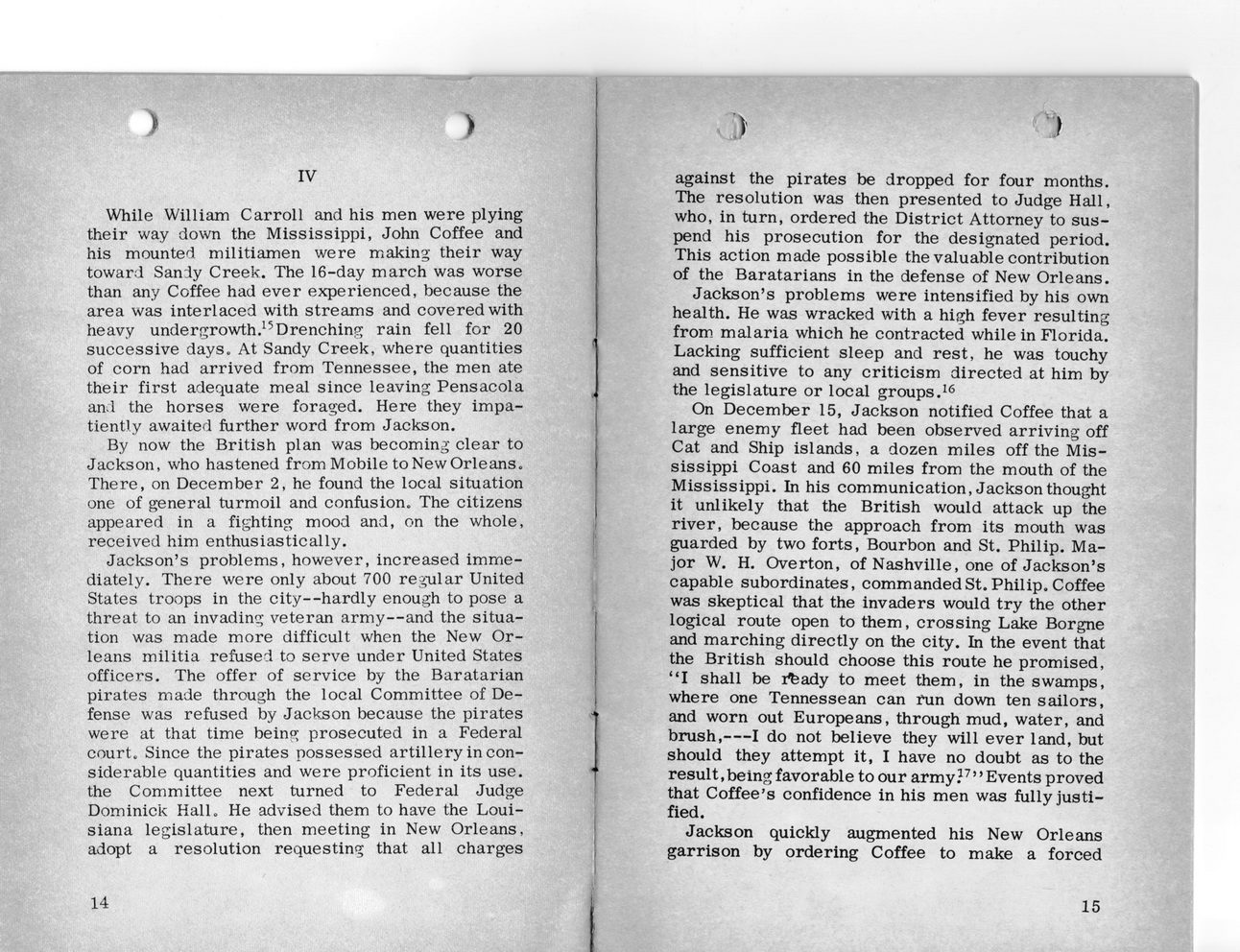This text was obtained via automated optical character recognition.
It has not been edited and may therefore contain several errors.
) > IV While William Carroll and his men were plying their way down the Mississippi, John Coffee and his mounted militiamen were making their way toward Sandy Creek. The 16-day march was worse than any Coffee had ever experienced, because the area was interlaced with streams and covered with heavy undergrowth.15Drenching rain fell for 20 successive days. At Sandy Creek, where quantities of corn had arrived from Tennessee, the men ate their first adequate meal since leaving Pensacola an.l the horses were foraged. Here they impatiently awaited further word from Jackson. By now the British plan was becoming clear to Jackson, who hastened from Mobile to New Orleans. There, on December 2, he found the local situation one of general turmoil and confusion. The citizens appeared in a fighting mood and, on the whole, received him enthusiastically. Jackson?s problems, however, increased immediately. There were only about 700 regular United States troops in the city?hardly enough to pose a threat to an invading veteran army?and the situation was made more difficult when the New Orleans militia refused to serve under United States officers. The offer of service by the Baratarian pirates made through the local Committee of Defense was refused by Jackson because the pirates were at that time being prosecuted in a Federal court. Since the pirates possessed artillery in considerable quantities and were proficient in its use. the Committee next turned to Federal Judge Dominick Hall. He advised them to have the Louisiana legislature, then meeting in New Orleans, adopt a resolution requesting that all charges 14 :> i against the pirates be dropped for four months. The resolution was then presented to Judge Hall, who, in turn, ordered the District Attorney to suspend his prosecution for the designated period. This action made possible the valuable contribution of the Baratarians in the defense of New Orleans. Jackson?s problems were intensified by his own health. He was wracked with a high fever resulting from malaria which he contracted while in Florida. Lacking sufficient sleep and rest, he was touchy and sensitive to any criticism directed at him by the legislature or local groups.16 On December 15, Jackson notified Coffee that a large enemy fleet had been observed arriving off Cat and Ship islands, a dozen miles off the Mississippi Coast and 60 miles from the mouth of the Mississippi. In his communication, Jackson thought it unlikely that the British would attack up the river, because the approach from its mouth was guarded by two forts, Bourbon and St. Philip. Major W. H. Overton, of Nashville, one of Jackson?s capable subordinates, commanded St. Philip. Coffee was skeptical that the invaders would try the other logical route open to them, crossing Lake Borgne and marching directly on the city. In the event that the British should choose this route he promised, ?I shall be x'feady to meet them, in the swamps, where one Tennessean can run down ten sailors, and worn out Europeans, through mud, water, and brush,-----1 do not believe they will ever land, but should they attempt it, I have no doubt as to the result,being favorable to our army?7? Events proved that Coffee?s confidence in his men was fully justified. Jackson quickly augmented his New Orleans garrison by ordering Coffee to make a forced 15

Battle of 1814 15